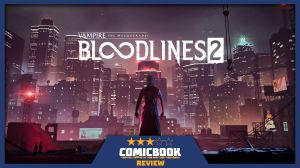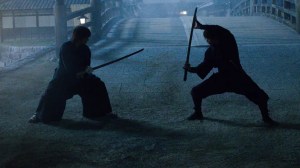Vampire games have always walked a fine line between power and tragedy, greatness and failure. They promise immortality, seduction, and blood-soaked grandeur—but the best of them remind us that being undead isn’t freedom, it’s a curse. Over the years, I’ve played numerous vampire games, hunted across different worlds and settings to satisfy my thirst for digital blood. No matter what game I play, I always come back to one that offers an intimate narrative full of gothic storytelling and meaningful choices. Others have come close: Vampire: The Masquerade – Bloodlines, Legacy of Kain, and even Vampyr. But none have captured the success of a game that was released two and a half decades ago.
Videos by ComicBook.com
Most people think of Bloodlines when it comes to the definitive vampire experience, and I can’t blame them, especially with the recent release of Vampire: The Masquerade – Bloodlines 2. But before these titles came Vampire: The Masquerade – Redemption, the first game to bring White Wolf’s tabletop world of gothic intrigue and moral decay to life, and do it in CRPG style.
The Forgotten Masterpiece That Defined Vampire RPGs
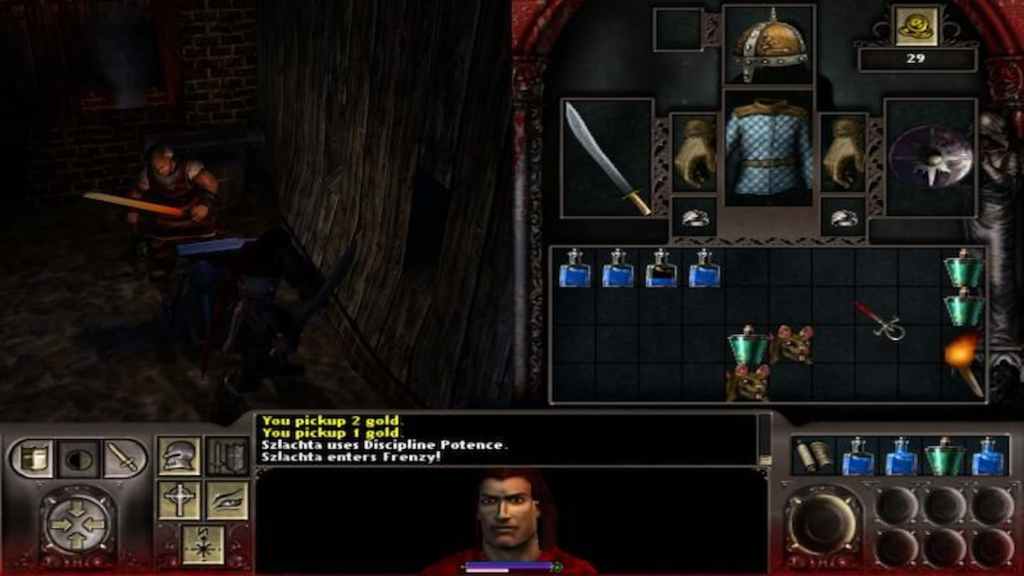
Vampire: The Masquerade – Redemption stands out as the best vampire RPG thanks to its ambitious, dark, and character-driven narrative. It begins in Medieval Europe, following a devout Crusader wounded in battle, Christof Romuald. He is rescued by a nun, Anezka, and their bond turns into a deep and passionate forbidden love. But this comes crashing down when Christof becomes a vampire, leading to a story that is filled with heartbreak. Christof would eventually lead a group of allies to save her after learning she had been turned into a ghoul, servants addicted to vampire blood. Ultimately, she would reject him in favor of Vukodlak, an ancient vampire, only for the castle to come crashing down on top of them.
But Christof’s story doesn’t end there: he awakes in the city of London in 1999. The switch of scenery surprised me and made me fall in love with the game further. This is further enhanced when Christof and his new allies travel to New York, where he encounters old friends, including Anezka. The historical chapters were breathtaking, and the story explored an eternal struggle that wasn’t just monsters, but Christof’s own soul. His humanity was constantly at war with his vampiric nature, leading to a game about guilt, loss, and faith.
Beneath Vampire: The Masquerade – Redemption was a fully realized moral drama. So many games lean into the cool antihero, whereas Christof was a fallen knight seeking redemption in a world he didn’t belong in. Its blend of lore, dialogue, and party-based tactics felt closer to Baldur’s Gate than anything that came after. Combat was tactical, allowing you to pause it and issue commands to your allies while balancing blood consumption and morality.
When I first played Vampire: The Masquerade – Redemption, I was floored not just by the gothic visuals, but by how impressive the game was. Every conversation had weight, and choices could have huge impacts centuries later. No vampire game has come close to matching the feelings Vampire: The Masquerade – Redemption, and while Bloodlines 2 has missed the mark, there is still hope in The Blood of Dawnwalker coming out next year.
Redemption Walked So Bloodlines Could Run
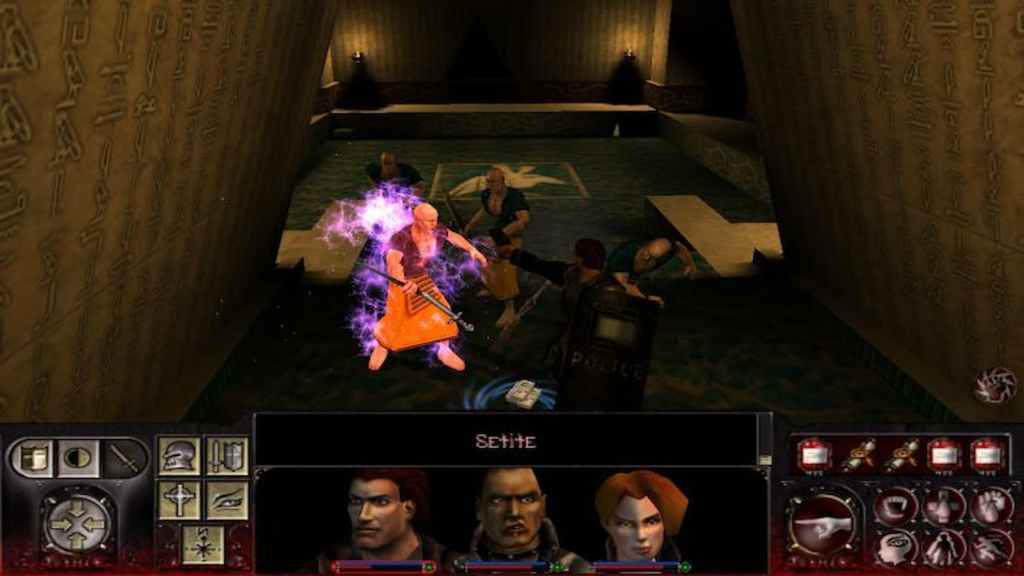
It’s easy to forget now, but without Vampire: The Masquerade – Redemption, there likely would never have been a Bloodlines. Nihilistic Software, the team behind Redemption, built the foundation that Troika Games later expanded upon: the factions, clans, and tension between vampiric power and the fragile human world. Bloodlines opted for an open-world approach, allowing the player to craft their own narrative, but I feel this takes away from the strength of its storytelling. Regardless of the improvements Bloodlines made, Redemption set the tone and proved that the World of Darkness could thrive as a video game.
But what made Redemption so special wasn’t just its story. It was its ambition. It balances ancient faith and modern sin through its narrative eras, transitioning from medieval chapters to modern-day cities. At the time, it was shocking and brilliant and made the game unforgettable. It brings an emotional intensity few games can match as I followed Christof from a knight to a powerful vampire out of time.
Even now, I can’t think of another RPG that balanced narrative scope and emotional intimacy quite like it. I loved Vampire: The Masquerade – Bloodlines, but it just can’t compare to its predecessor. It utilized the timelessness of being a vampire to its fullest, going beyond just showing immortality. Looking back, moments like when Christof reunites with Anezka after hundreds of years have stayed with me, and no moment in any other vampire game has had the same effect.
Two Decades Later, No Game Has Matched Vampire: The Masquerade – Redemption
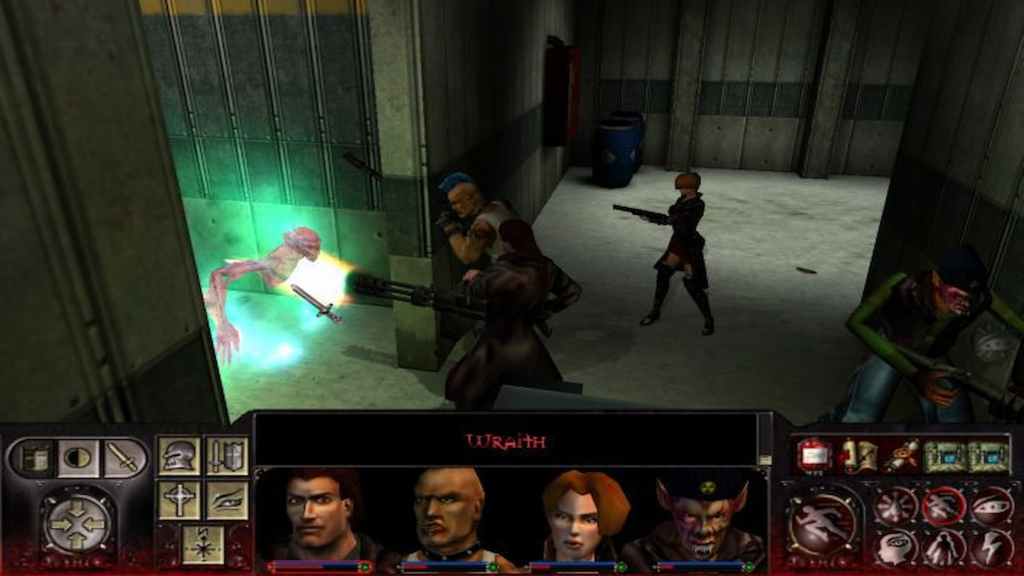
We’ve had countless vampire games in the many years since Redemption. Some action-heavy, some narrative-driven, but none have matched its mix of role-playing depth and emotional weight. Bloodlines may have stolen the spotlight, but it was a buggy mess and incomplete at launch. Fans largely saved it with mods, whereas Redemption launched as a polished, cohesive, and structured classic CRPG. And yet, Redemption has largely vanished from the public memory.
Vampire: The Masquerade – Bloodlines 2 has officially been released, but the reception has been mixed. This is no surprise considering the development cycle and how some Clans were locked behind DLC. While this only confirms my suspicions, even at the first trailer, I couldn’t help but wonder if the wrong game is being honored. Bloodlines 2 was the wrong choice, and it should have been Vampire: The Masquerade – Redemption 2 that was being made. I mean, look at the CRPG revival that has happened since Baldur’s Gate 3 launched.
Twenty-five years on, Vampire: The Masquerade – Redemption still lingers in the minds of those who played it, myself included. It is not just a relic of a bygone era in gaming, but a reminder of what storytelling in games can achieve. Other, newer vampire games may be flashier in their presentation, but Redemption truly shows what it is like to be a vampire. In doing so, it set a standard that no vampire game has ever quite reached.
What do you think? Leave a comment below and join the conversation now in the ComicBook Forum!

